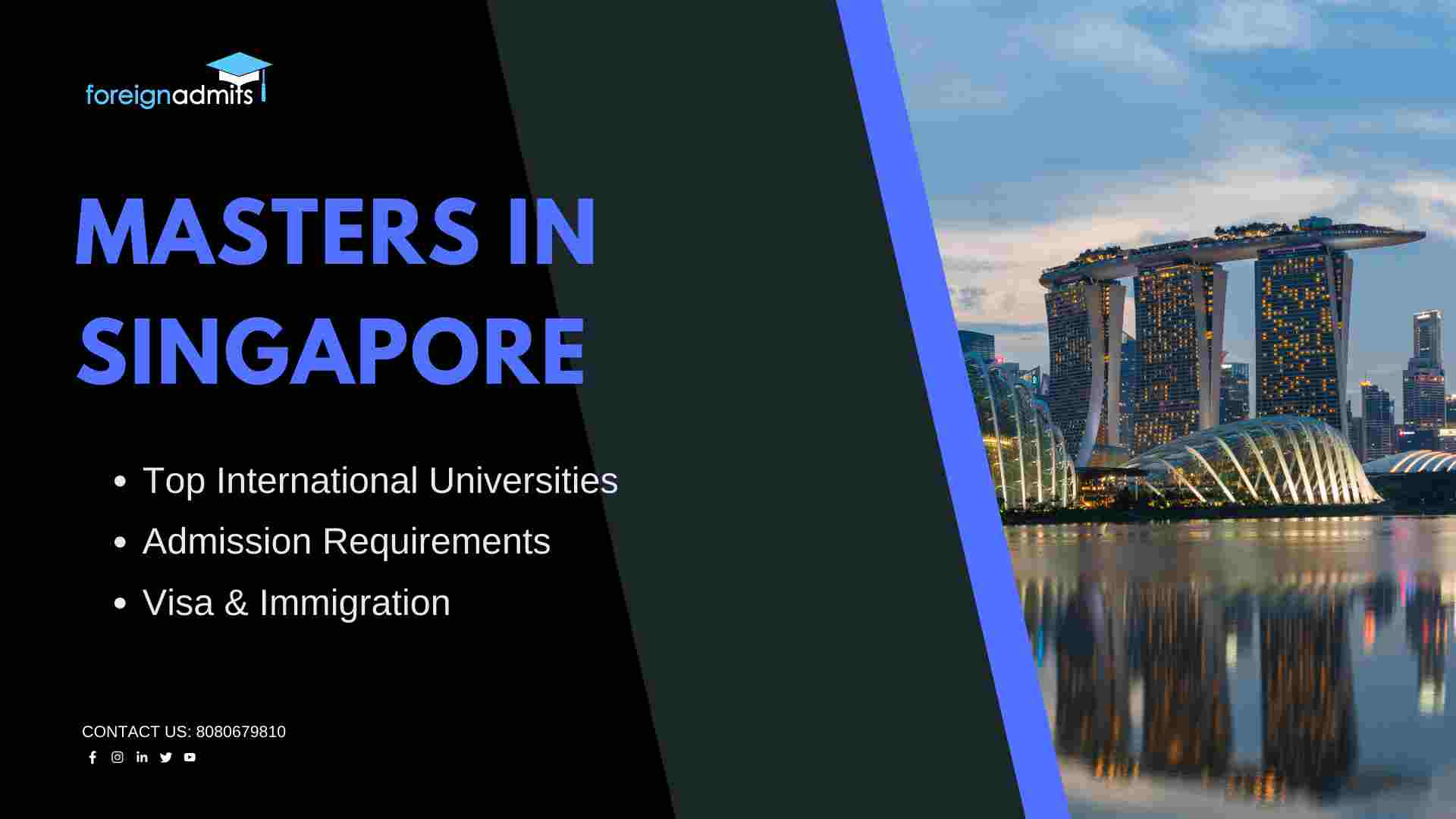A Masters in Singapore is a great opportunity for students to spend a year or two living in an exotic location and study and upskill within a vibrant, forward-thinking intellectual culture. In recent times, Singapore has become a hub for academic excellence in South-East Asia.
Education Landscape in Singapore
Singapore’s educational landscape is an incredibly diversified one. Being packed with local and foreign universities, the opportunities offered are limitless. Moreover, Singaporean universities adhere to some of the stringer rules & regulations when it comes to higher education. Having strict rules and framework produces the best and the brightest graduates recognizable internationally.
[widgets_on_pages id=”Masters”]
Right now, Singapore does not recognize overseas universities anymore. If you are applying check the background of the Singaporean university first. Also check, if the degrees offered by overseas institutions in professional fields are recognized by professional bodies or not.
Top Universities In Singapore
The Ministry of Education (MoE) is that the body which is responsible for upper education in Singapore, although since 2011, private institutions have also registered with the Council for personal Education (CPE).
Singapore has six public universities, offering postgraduate study opportunities:
- National University of Singapore (NUS)
- Singapore University of Social Sciences (SUSS)
- Singapore Institute of Technology (SIT)
- Nanyang Technological University (NTU)
- Singapore Management University (SMU)
- Singapore University of Technology and Design (SUTD)
Admission Requirements For Masters In Singapore
Candidates must submit entry examination scores (e.g. GRE or GMAT). Admission to taught and research Masters requires an honest undergraduate degree or equivalent during a relevant discipline.
Students who do not have a native language as English must demonstrate proficiency in English in the form of TOEFL or IELTS as part of the admission criteria.
It must be noted that achieving the minimum entry requirements does not guarantee admission. Since the number of qualified applicants often exceeds the number of places available. Departments can also admit students who possess appropriate research experience in their chosen field of specialization, subject to approval by the relevant administrative unit.
Fees and Scholarship
The tuition fee for the Master’s programs in Singapore is usually expensive. However, the exact cost will depend upon the university. Moreover, as a world student one can expect to pay an unsubsidized fee within the region of S$35,000 (USD$25,950) for a graduate program.
Foreign students enrolled at the National University of Singapore and Nanyang Technological University who self-finance can choose to pay a subsidized tuition fee rate.
This is not hospitable students who receive any quite scholarship. Not all programs are eligible for the subsidy and these are selected based on the needs of the labor market. Individual universities also have the authority to decide which programs can benefit from an MoE subsidy, so check the university’s website.
The subsidy amount for overseas students ranges from S$5,000-S$40,000 (USD$3,700-30,000), counting on the topic area. To qualify, one would have to sign an agreement, called a Service Obligation (SO) with the MoE to figure in Singapore-based companies for 3 years after graduation.
Although attractive financially, the length of the SO is for three years. No matter how long the Master’s program so confirm you understand the terms and that you have plans to work in Singapore.
Financial assistance for graduate students is additionally available within the sort of scholarships from universities and external agencies. These scholarships have certain eligibility criteria and they are highly competitive and generally awarded based on academic excellence. Theses are ASEAN Scholarship, APEC Scholarship, Tuition fee allowance from Universities, and University scholarships.
Graduate students can also apply for a loan under the schooling Fee Loan (TFL) scheme. Moreover, the maximum loan amount is 90% of the study fees payable by Singapore citizens. It is available for selected Masters Degrees.
Visa & Immigration
All international students must carry a Student’s Pass issued by the Singapore Immigration & Checkpoints Authority (ICA). One can do the process online via the Student’s Pass On-Line Application and Registration (SOLAR) system.
Both universities and students use to submit the relevant documentation for Masters In Singapore. Successful applicants will have an in-principle approval (IPA) letter by ICA. For applicants who require a visa to enter Singapore, a visa is incorporated within the IPA letter.
[widgets_on_pages id=”Masters”]
Career Prospect After Masters In Singapore
Masters In Singapore is not only a prerequisite for Ph.D. study, but it also opens up several career options. Singapore has always been one of the most attractive countries for foreigners seeking highly-skilled work.
Emerging as a hub for business and high-tech industries in South-East Asia, Singapore offers a wide range of opportunities. Notably in key sectors such as banking and finance, electronics, biomedical sciences, chemicals, communications and media, healthcare, and information technologies.
Read Study In Singapore

Leave a Reply